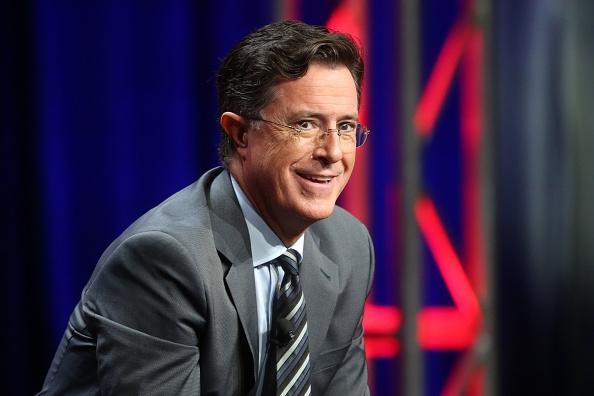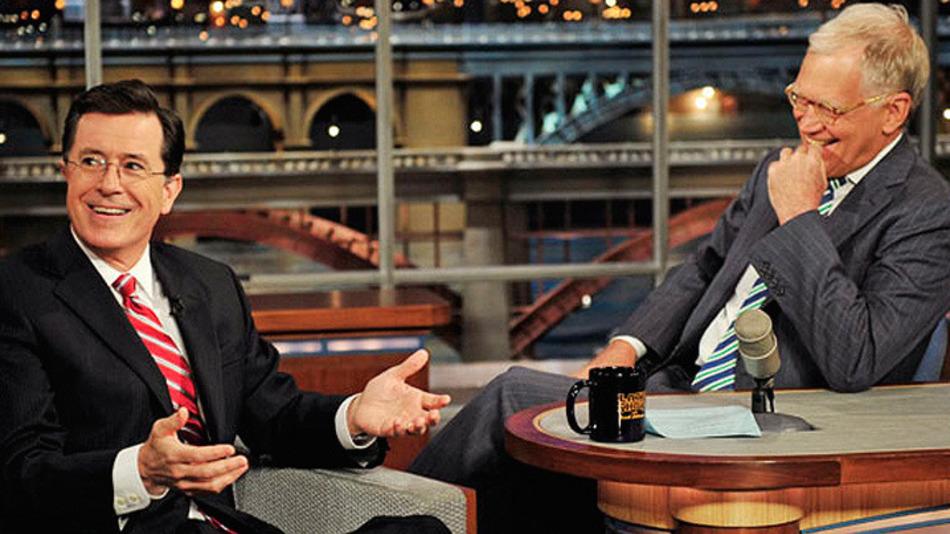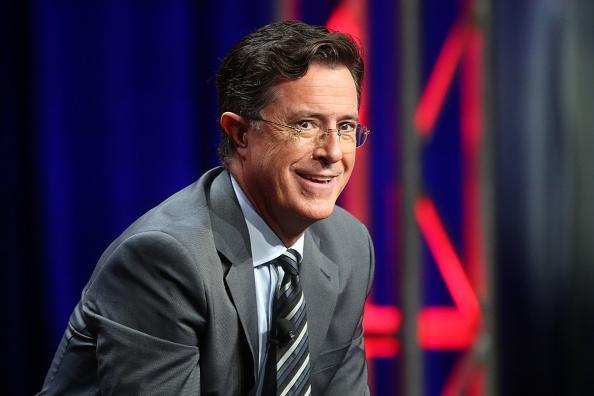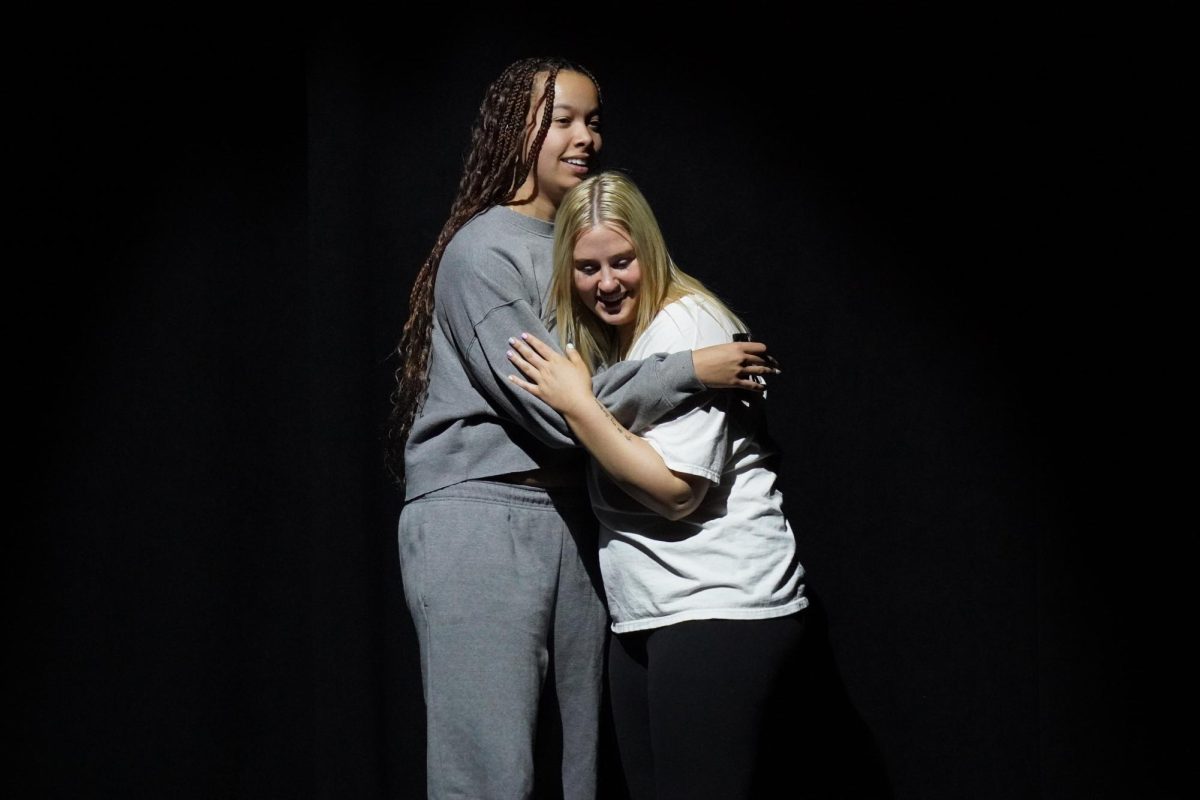facebook.com The “Late Show with Stephen Colbert” premiered Sept. 8, and earned 6.6 million viewers for the season debut.
Stephen Colbert has returned. Last week, the highly acclaimed don of satire made his debut on CBS, replacing David Letterman as the host of The Late Show.
Colbert, who hosted “The Colbert Report” on Comedy Central for nine years, is known for his portrayal of an absurdly opinionated fictional character, who Colbert himself has called a “well-intentioned, poorly informed, high-status idiot.”
facebook.com
However, this character is notably absent from Colbert’s newest program. Fortunately, the comedian’s signature brand of humor remains intact, despite the disappearance of his famous alter-ego.
Also surviving the transition to a new network were many traces of Colbert’s Comedy Central legacy. Jon Stewart, for example, not only gave a brief cameo for the first episode, but also serves as an executive producer for the show.
What’s more, replacing Paul Shaffer and the CBS Orchestra as The Late Show’s on-stage band is Jon Batiste and Batiste’s band Stay Human (In 2014, Batiste and Stay Human made guest appearances on The Colbert Report.)
Multiple times, the audience even performed a classic Colbert Report chant, in which they shouted out Colbert’s first name repeatedly and in gradually quickening rhythm, until at last breaking out into general applause. One may begin to wonder if Colbert will ever outgrow the impact he has already made.
While Colbert seemed comfortable in his new position, these first few episodes felt a bit like watching a man breaking in a new pair of shoes.
There were some very subtle moments where Colbert fumbled on his words or looked at the wrong camera, but these moments were barely noticeable.
Colbert appeared most at home while sitting behind a desk, commenting on politics as visual graphics accompanied him to the side. He also did well in the various interviews he gave, which covered a range of topics.
With George Clooney, the show’s very first guest, the conversation went from Clooney’s humanitarian work in Africa to the fact that Clooney didn’t actually have a reason to be on the show, since the famous actor had nothing to plug. The interview with Clooney seemed rather pointless.
Presidential candidate Jeb Bush appeared after Clooney. Bush began to speak on the extreme levels of partisanship found within Washington D.C.
“In state capitols, this doesn’t happen to the same extent as it does in Washington,” Bush said, “We have to restore a degree of civility.”
Whereas hardly anyone clapped for Bush when he emerged onstage, the crowd cheered fervently as he departed.
On a more serious note, Vice President Joe Biden also made an appearance on the show, and was nearly brought to tears when talking about his recently departed son, Beau Biden.
When Colbert asked how Biden’s catholic faith gave him strength in his time of grief, the Vice President quoted existentialist philosopher Søren Kierkegaard, saying “Faith sees best in the dark.”
In comparison with David Letterman, Stephen Colbert seems to be more in touch with the younger generation.
For example, on the series finale of Letterman’s “Late Show,” Letterman made a joke referring to an obscure show called “Keeping up with the Gabors,” which was the most popular show on television when “The Late Show” with David Letterman first aired in 1993.
Colbert, on the other hand, made references to rapper Lil’ Jon. Speaking of hip hop, Kendrick Lamar was Colbert’s musical guest in one of the new episodes, and playing segments from his 2015 album “To Pimp a Butterfly.”
From asking Scarlett Johansson whether she would rather have hands for feet or feet for hands, to making ridiculous decrees with an oversized hat in the likeness of Genghis Khan, Colbert seems to be off to a good start at CBS.
When “Tonight Show” host Jimmy Fallon appeared in the first episode and, addressing Colbert, joked “See you in the locker room,” the feeling was that Colbert had officially joined the ranks of Fallon, Conan O’Brien and Jay Leno, and what’s more, that Colbert actually belonged there.





![[Both photos courtesy of sonoma.edu]
Ming-Ting Mike Lee stepped in as the new SSU president following Sakakis resignation in July 2022](https://sonomastatestar.com/wp-content/uploads/2024/04/CC4520AB-22A7-41B2-9F6F-2A2D5F76A28C-1200x1200.jpeg)




























